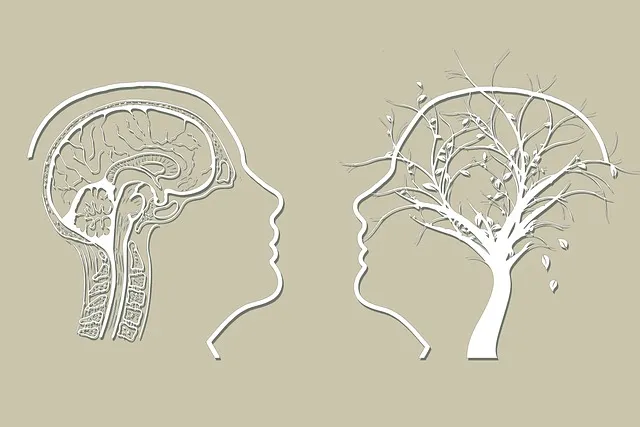Lakewood Kaiser Permanente enhances mental health coverage through multi-faceted initiatives. They combat stigma with public awareness campaigns, educate patients, and support healthcare providers with burnout prevention strategies. Innovative programs include advanced assessment tools, tailored communication for diverse populations, and comprehensive emotional well-being promotion. Their commitment to holistic care improves diagnostic accuracy, leading to better patient outcomes and reduced relapses in psychiatric conditions.
Mental illness diagnosis accuracy is a critical aspect of patient care, yet challenges remain. This article delves into the current hurdles in identifying mental disorders, exploring innovative solutions that promise improvements. We highlight the efforts of Lakewood Kaiser Permanente, a pioneer in enhancing access to Lakewood Kaiser Permanente mental health coverage through advanced diagnostic tools and strategies. By examining these initiatives, we gain insights into potential impacts and future directions for more accurate and effective mental illness diagnosis.
- Understanding the Current Challenges in Mental Illness Diagnosis
- The Role of Lakewood Kaiser Permanente in Enhancing Mental Health Coverage
- Innovative Strategies to Improve Diagnosis Accuracy
- The Impact and Future Directions for Enhanced Diagnosis Services
Understanding the Current Challenges in Mental Illness Diagnosis

Mental illness diagnosis is a complex process, often shrouded by misconceptions and stigma, which can lead to inaccurate assessments. The current challenges lie in the multifaceted nature of mental health conditions—symptoms vary widely across individuals and can overlap with physical ailments. This complexity necessitates a holistic approach, considering biological, psychological, and social factors. Additionally, healthcare providers face the burden of burnout, impacting their ability to maintain focus and accuracy during diagnostic evaluations.
At Lakewood Kaiser Permanente, efforts are underway to address these issues through various initiatives. Public Awareness Campaigns Development plays a pivotal role in educating the public about mental health, fostering an environment where individuals feel comfortable seeking help without fear of judgment. Moreover, Burnout Prevention Strategies for Healthcare Providers aim to enhance their coping skills and resilience, ensuring they remain vigilant and precise in their diagnoses. These strategies include regular training sessions, peer support networks, and self-care programs designed to mitigate burnout and promote sustained diagnostic accuracy.
The Role of Lakewood Kaiser Permanente in Enhancing Mental Health Coverage

Lakewood Kaiser Permanente stands as a beacon of hope and progress in the realm of mental health coverage. Their commitment to enhancing emotional well-being is evident through innovative programs that address the unique challenges faced by individuals in need. By integrating advanced mental health education designed with input from leading experts, they empower patients with knowledge and skills to manage their conditions effectively.
This healthcare provider’s approach extends beyond traditional treatment models, employing communication strategies tailored to diverse patient populations. They foster a supportive environment where open dialogue is encouraged, breaking down barriers often associated with mental health discussions. Such efforts not only improve diagnosis accuracy but also contribute significantly to the overall Emotional Well-being Promotion Techniques within their community, setting a standard for comprehensive mental healthcare.
Innovative Strategies to Improve Diagnosis Accuracy

At Lakewood Kaiser Permanente, efforts to enhance mental health coverage have led to the implementation of innovative strategies aimed at improving diagnosis accuracy. One such approach is the integration of advanced assessment tools and technology, which helps in providing more detailed insights into patients’ conditions. These tools often go beyond traditional methods, incorporating digital platforms and artificial intelligence algorithms to analyze patterns and symptoms, thereby increasing diagnostic precision.
Additionally, Lakewood Kaiser Permanente prioritizes training healthcare professionals on the latest research and best practices in mental health diagnosis. This includes enhancing skills in communication strategies, which are vital for building trust with patients and encouraging them to share intimate details about their emotional healing processes. Emotional well-being promotion techniques are also emphasized, aiming to create a supportive environment that facilitates accurate assessments and effective treatment planning.
The Impact and Future Directions for Enhanced Diagnosis Services

The accurate diagnosis of mental illness is paramount to ensuring effective treatment and improved patient outcomes. However, challenges such as stigma, limited access to resources, and complex presentations often hinder this process. Enhanced diagnosis services at Lakewood Kaiser Permanente have shown promising results in tackling these issues. By integrating innovative tools like advanced risk assessment for mental health professionals, improving patient-provider communication, and implementing comprehensive mental health education programs designed to boost confidence and reduce bias, the healthcare system aims to improve diagnostic accuracy.
Looking ahead, these efforts are expected to lead to more precise and timely diagnoses, better matching patients with appropriate treatments. This, in turn, could significantly impact mental health outcomes, potentially reducing relapses and improving quality of life for individuals managing various psychiatric conditions. Continued research, collaboration between healthcare providers, and robust mental health education programs design will be crucial in sustaining and building upon these improvements.
Mental illness diagnosis accuracy has long been a complex issue, but with efforts like those exemplified by Lakewood Kaiser Permanente in enhancing mental health coverage, innovative strategies are emerging. By combining advanced technology with comprehensive care models, we can significantly improve diagnosis accuracy and patient outcomes. The impact of these initiatives is evident, promising a brighter future for mental healthcare where every individual receives timely, effective treatment.






